Why is the World Cup in Saudi Arabia so controversial?
BBC Sport's Olly Foster explains more about the Saudi World Cup
- Published
Fifa has announced that Saudi Arabia will host the 2034 men's football World Cup.
It was the only country to bid for the tournament.
Saudi Arabia has had a growing influence on global sport in recent years, hosting many major sports events, including Formula One, tennis, boxing and golf.
However, the choice has been criticised by many groups, including environmental campaigners and human rights groups, over a number of issues.
Keep reading to find out why Fifa's decision has been so controversial.
More like this
Why are footballers moving to the Saudi Pro League?
- Published24 July 2023
Fifa and Konami join up for new efootball world cup
- Published11 October 2024
Why are people criticising Anthony Joshua for fighting in Saudi Arabia?
- Published7 December 2019
Human rights in Saudi Arabia
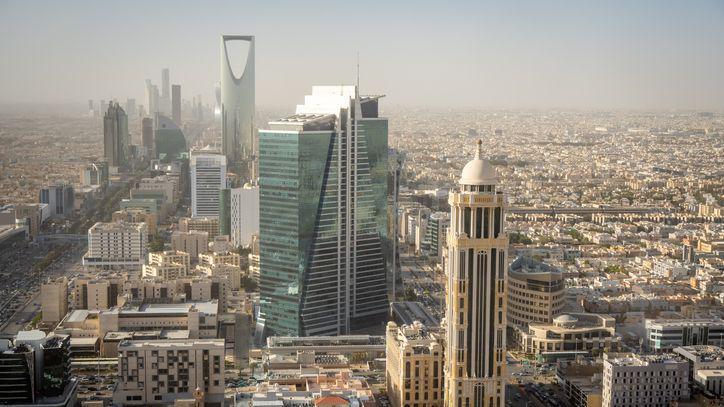
Saudi Arabia has been criticised for its human rights record.
In the country, women are heavily restricted in what they are allowed to do and it's also illegal to be in a gay relationship.
Women in Saudi Arabia were only allowed to enter sports stadia to watch matches in 2018, but since then a professional women's football league and national women's team has been created, with more than 70,000 girls now playing regularly.
Free expression is severely restricted and there have been concerns over the treatment of migrant workers in the country.
While campaigners acknowledge that there have been important reforms in recent years, for example over women's rights, they also point out there have been continued problems.
Fifa has been under pressure to push for more changes in Saudi Arabia, before awarding it the World Cup.
'Sportswashing'
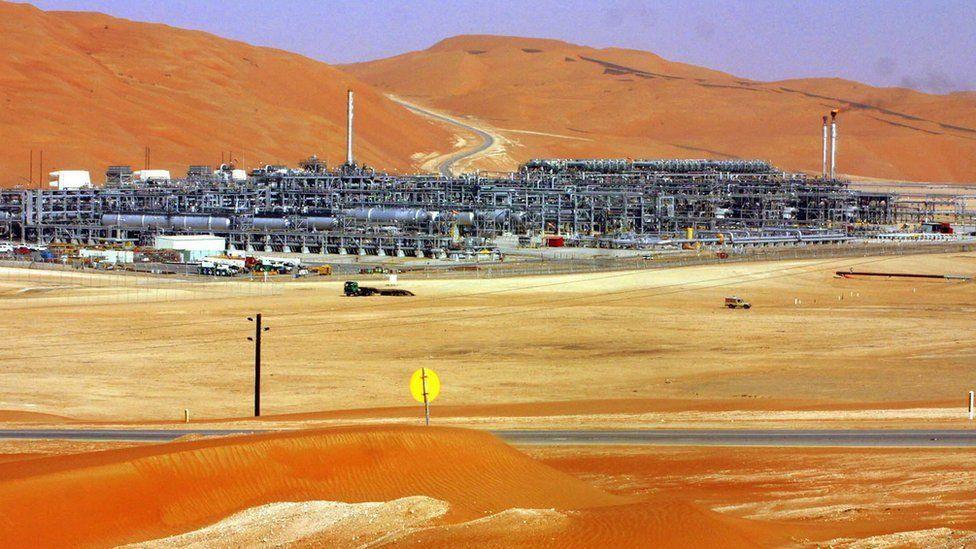
Saudi leaders say they want to make the country less reliant on fossil fuels like oil.
The Kingdom of Saudi Arabia has recently pumped lots of money into its top flight football league - the Saudi Pro League - along with other sports like Formula One, golf and boxing.
This has led to some campaigners of accusing it of sportswashing.
Sportswashing refers to when a country or organisation uses sport to help improve its international reputation and to stop people being negative about it.
However, Saudi leaders deny this and say the investment is to help modernise the kingdom and make it less reliant on fossil fuels like oil.
Currently the country's main source of income is from selling oil to other nations and it says it is trying to develop its economy by diversifying into industries like sport and entertainment.
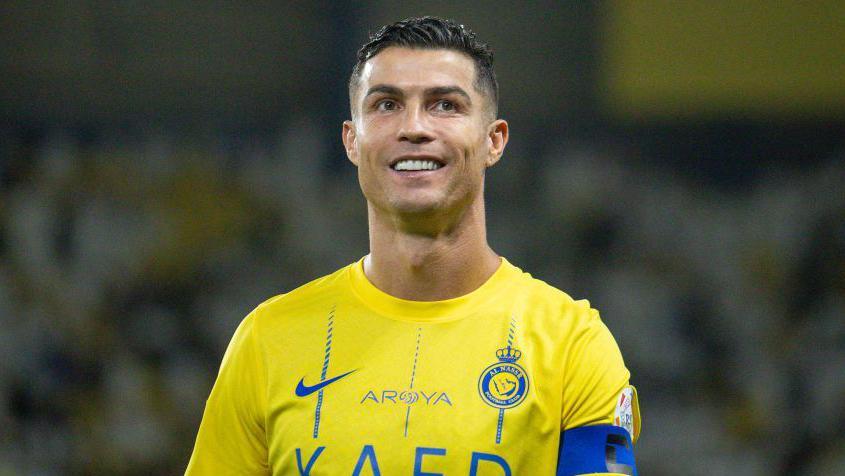
Cristiano Ronaldo is one of a number of well-known stars who have made the move to the Saudi Pro League
The extra cash being spent on sport means football teams in Saudi Arabia can pay high-profile players a lot of money to come and play there.
Many well-known football stars have made the move from the Premier League to the Saudi Professional League in recent years including Cristiano Ronaldo, former Liverpool and England defender Jordan Henderson, former Chelsea goalkeeper Édouard Mendy and former Manchester City player Riyad Mahrez.
In addition, Saudi Arabia and Fifa, under current president Gianni Infantino, have developed their relationship.
The country hosted Fifa's 2023 Club World Cup, and the football governing body has a big sponsorship deal with Saudi state-owned oil company Aramco.
Environmental impact
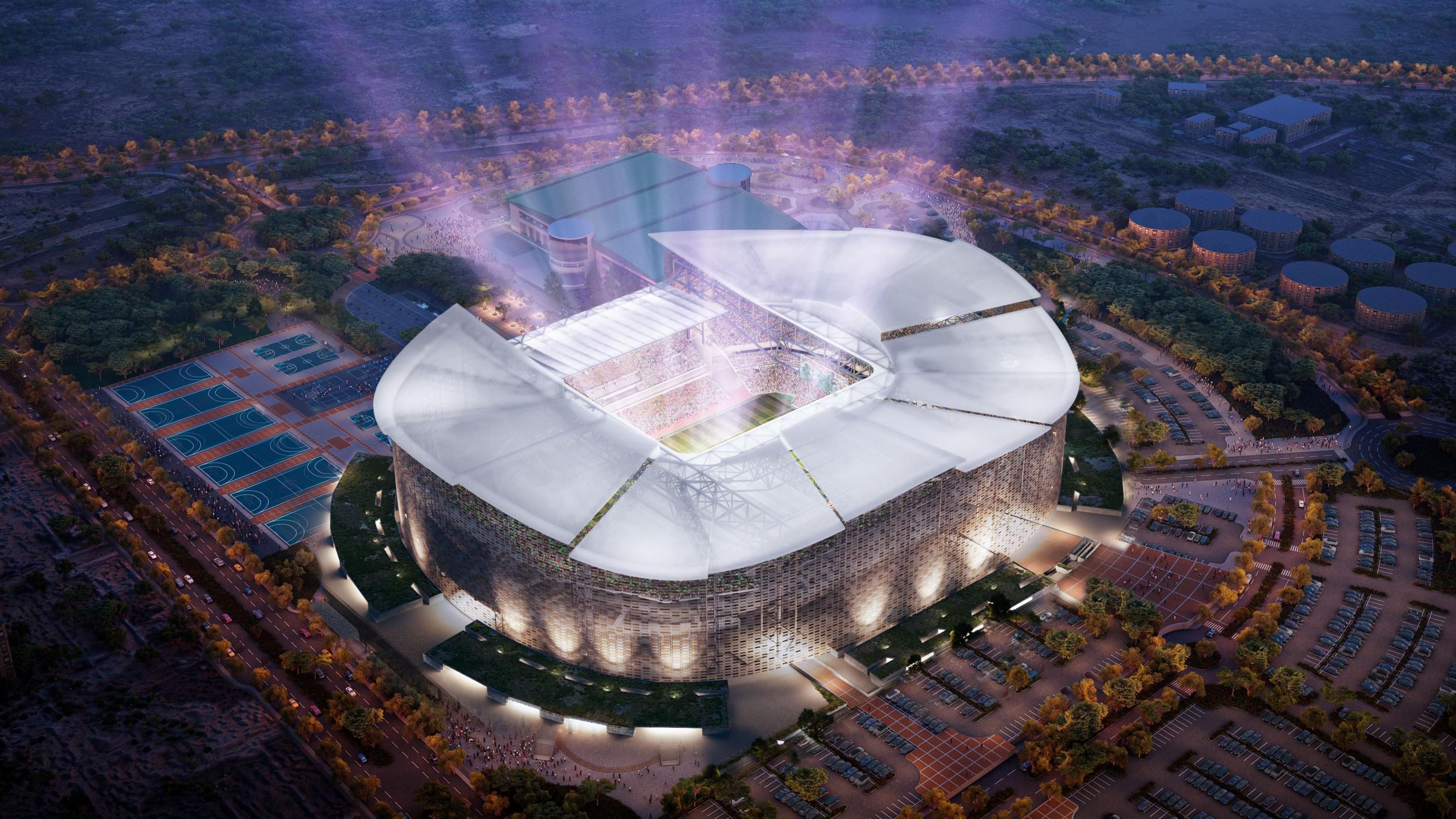
An artist's impression of the King Khalid University Stadium in Abha which will be one of 15 stadiums Saudi Arabia plans to use for the 2034 World Cup
World Cups generally produce high amounts of pollution due to the construction of stadiums, hotels and all that air travel by teams and fans.
Saudi Arabia's bid includes 15 stadiums - including three that are currently being built and eight where work is yet to start.
The proposed host cities are hundreds of miles apart and means fans who want to move between them are likely to have to use air travel.
Saudi Arabia has also been criticised for its environmental record.
It is the world's biggest exporter of oil and has been accused by campaigners of adding to climate change through its fossil-fuel industry, and of blocking climate action.
The Saudi government says it is moving away from fossil fuels and trying to reduce emissions, and has said it isn't using sport to distract from its record on sustainability.
Another winter World Cup?
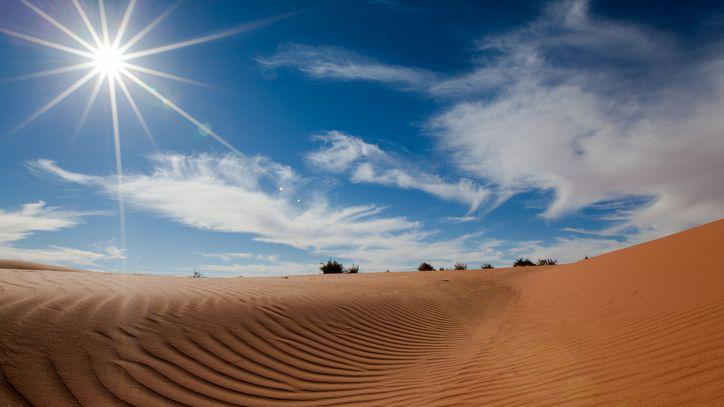
The Qatar World Cup in 2022 was the first to be held in the Middle East in the tournament's history and was the first to take place during winter instead of the summer, when the tournament is traditionally held.
This is because summer temperatures in the region can be hotter than 40C.
As Saudi Arabia is a neighbouring country and has a similar climate, many people expect the 2034 World Cup to also be held in the winter.
According to the PA news agency, the Premier League and other top European leagues would be against staging another winter World Cup as it would mean even more disruption to an already very busy football calendar.
But speaking to the BBC, Saudi sports minister Prince Abdulaziz said organisers were "definitely studying" whether it could be staged in the summer.
"Why not see what the possibilities are to do it in the summer? Whether it is summer or winter it doesn't matter for us, as long as we make sure that we [deliver] the right atmosphere to host such an event," he said.
What has Saudi Arabia said?
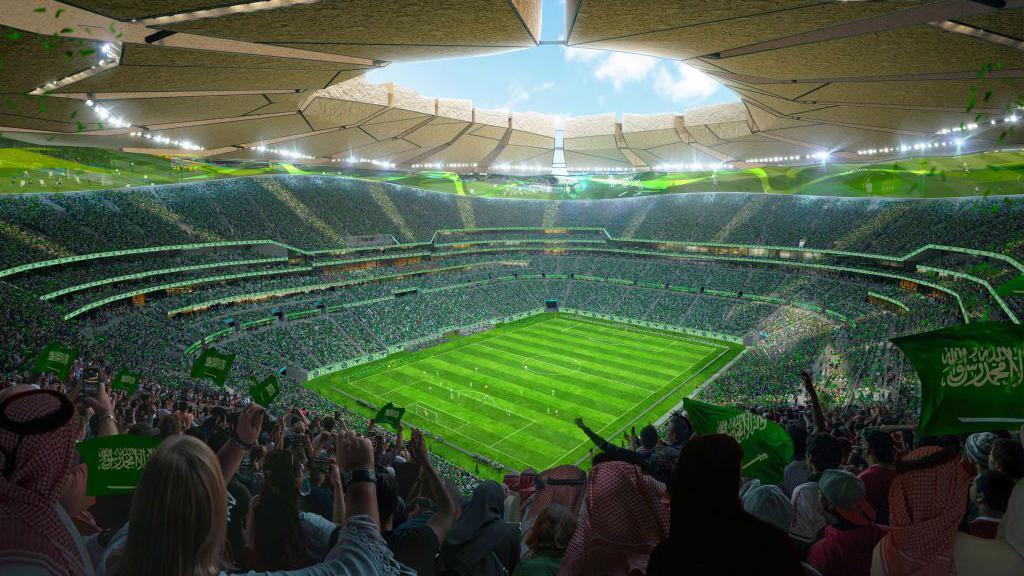
Saudi Arabia has said that a World Cup in its country would be "extraordinary."
Fifa's report into looking at the hosting the tournament in the country mentions "a range of impressive stadiums which, when built or refurbished, could offer state-of-the-art infrastructure".
Others say that having a international focus on the country could actually help things change there - they argue it could open the country up for the world to see and could lead to more freedoms.
Fifa also points to an opportunity to bring football to more countries and more fans. It considers the Qatar World Cup in 2022 to have been a success at growing the game in a similar part of the world.
Head of Saudi Arabia's bid team, Hamad Albalawi added: "I think, there's been, 12 World Cups in Europe. Five World Cups in South America. There's been a World Cup in Africa and only two in Asia.
"I think this is a region that is very much hungry for more - to do more in football."
